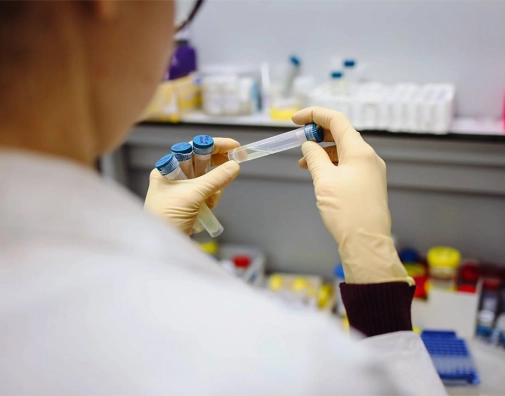
Your DNA: Stress and Resilience

Stress, DNA and Resilience: What Does the Latest Research Say?
Understanding the link between our genetic makeup and how we cope with life’s challenges
Stress is part of life. Whether it stems from work pressure, personal upheaval or unexpected events, we all face it in our own way. But why do some people seem to handle it better than others? Part of the answer may lie... in our DNA.
Does stress leave a mark on our DNA?
Research in the field of epigenetics — a branch of genetics that studies how environment influences gene expression — shows that chronic stress can alter the way certain genes are turned on or off. These changes don’t affect the DNA sequence itself, but they can impact hormone production (such as cortisol) and have long-lasting effects on our mental and physical balance.
For instance, studies have shown that early-life stress can lead to changes in the expression of genes involved in emotional regulation, immunity, and stress recovery.
Psychological resilience: is it written in our genes?
Certain genes have now been identified as playing a key role in how we respond to stress. These include the COMT gene, which is involved in breaking down dopamine, and the FKBP5 gene, which regulates sensitivity to stress hormones.
Variations in these genes may influence how quickly a person recovers from a stressful event or how prone they are to anxiety. In other words, our “resilience” — the ability to bounce back — may be partly shaped by our genetic makeup.
But this doesn’t mean everything is set in stone. Genetics gives us a predisposition, not a destiny. Lifestyle choices, environment, and habits all play an essential role in our ability to cope.
Using genetics to manage stress more effectively: practical insights
Today’s wellness-oriented DNA tests can identify genetic markers associated with stress response, sleep quality, caffeine sensitivity, or serotonin production. This knowledge allows for a more tailored approach to mental well-being.
Here are some practical applications:
- Adapting your lifestyle: Depending on your genetic profile, you might benefit more from specific relaxation techniques, sleep routines, or dietary adjustments.
- Choosing the right coping strategies: Individuals who are genetically more sensitive to stress may respond particularly well to mindfulness meditation or regular physical activity.
- Recognizing warning signs: Knowing your vulnerabilities helps you remain aware of how you react under pressure.
At Adnà, we believe that self-awareness is the first step toward balance.
Our wellness DNA tests include insights into stress response, giving you the tools to build your psychological resilience.
Because your DNA holds answers — and you deserve to know them.
Other Journal: DNA
VIEW MORE


